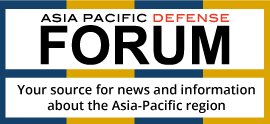Muslim clerics and leaders in Southeast Asia are condemning the enslavement of women and children by the Islamic State of Iraq and Syria (ISIS), along with sexual violence and killings carried out by ISIS fighters against innocent and vulnerable people.
"There is no way the Qur'an will allow you to use women and children for slavery, regardless of their religion," Kuala Lumpur cleric Muhammad Akhil Fathori told Khabar Southeast Asia. "Islam is only teaching good things – tolerance, forgiveness – not only among fellow Muslims but also among those who have different religions.
"This is a true preaching in Islam."
Akhil warned against following ISIS, adding its actions go against Islam in many ways. "They are not Muslims; they are monsters using Islam to attract innocent Muslims to join them and to force those who disagree with them into slavery," he said.
People throughout Southeast Asia reacted to reports from the UN and other human rights organisations about ISIS's enslavement of innocents. ISIS is made up jihadists from around the world, including Indonesians and Malaysians .
Female slaves
Iraq's Independent High Commission for Human Rights has documented victim testimony of such crimes in Iraq, commission member Bushra al-Obaidi told Khabar.
"According to what we knew and documented, there are several slave markets established by ISIS gunmen in Ninawa Province, one in the city of Mosul, another at Tal Afar Airport and a third on the border with Syria," she said. Bushra added the trade also takes place in the Syrian city of al-Raqa, where women prisoners are given to gunmen for small amounts of money.
The testimonies reveal the scope of the trade: at least 3,000 women and children from the Christian and Yazidi communities as well as Muslim women and children purchased and sold as slaves.
"The prices of women on the slave markets vary from $200 to $1,000, and the price increases when the female prisoner is a virgin, younger and more beautiful," she said.
On Sunday (October 12th), Human Rights Watch (HRW) confirmed ISIS holds hundreds of Yazidi men, women and children captive in Iraq and Syria.
Citing testimonies by relatives of captives, HRW said ISIS systematically separated young women and teenaged girls from their families, forcing some to marry its fighters. The watchdog group also reported ISIS fighters were selling captive women and girls among themselves.
"[ISIS’s] litany of horrific crimes against the Yazidis in Iraq only keeps growing," Fred Abrahams, Human Rights Watch special adviser, said in a statement. "We heard shocking stories of forced religious conversions, forced marriage, and even sexual assault and slavery – and some of the victims were children."
In addition to the enslavement of innocents, ISIS also executed Iraqi women, AFP reported. This month, ISIS executed at least four women in northern Iraq, including two doctors and a politician.
Bambang Sukmanto, a 37-year-old Jakarta resident said about ISIS's practices: "I am a Muslim and I graduated from a pesantren. The more I've learned about ISIS, the more I am disgusted. All of their actions are a disgrace to Islam.
"It makes Muslims like me embarrassed. ISIS says they are Muslim, but all of their actions are not representative of Islam."
"God forbids it"
ISIS attempts to justify its barbaric practices in the latest edition of its propaganda magazine, Dabiq .
In an article titled "the revival of slavery before the hour", ISIS boasts that it forced captured Yazidi women and children from northern Iraq into slavery, and said it is restoring an aspect of Islamic sharia law to its original meaning by enslaving "religious deviants", AFP reported.
Din Syamsuddin, chairman of the influential Indonesian Ulema Council (MUI), slammed ISIS's justification for slavery.
"I think ISIS is politicising the Qur'an," Din told Khabar. "There is no passage in the Qur'an allowing the use of women as concubines and selling women and children into sexual slavery. It is very inhuman. God forbids it."
Alisha Nurhayati in Kuala Lumpur, Aditya Surya in Jakarta, Khalid al-Taie in Baghdad and AFP contributed to this report.

![Australians embrace at a makeshift memorial in Sydney's Martin Place, the site of the December 15-16th café siege. [Ade Mardiyati/Khabar]](/shared/images/2014/12/23/141223-ADE_AU_CAFEREAX-100_67.jpg)
![Malaysia Police Chief Khalid Abu Bakar addresses a press conference in Sepang on March 11th. On December 15th, he announced the recent capture of seven Indonesians with their five children. Allegedly, they were en route from Malaysia to Syria, seeking to join the Islamic State of Iraq and Syria (ISIS). [Manan Vatsyayana/AFP]](/shared/images/2014/12/20/141220-ALISHA_MY_ARRESTS2-100_67.jpg)
![Student volunteers from Ramkhamhaeng University in Bangkok form a human chain as they help build an Islamic study centre in a remote Narathiwat Province village. The centre is due to open today. [Rapee Mama/Khabar]](/shared/images/2014/12/19/141219-RAPEE-TH-TADIKA-100_67.jpg)
![Australians embrace at a makeshift memorial in Sydney's Martin Place, the site of the December 15-16th café siege. [Ade Mardiyati/Khabar]](/shared/images/2014/12/23/141223-ADE_AU_CAFEREAX-100_67.jpg)
Reader Comments
CLICK HERE to Add a Comment
Add A Comment (Comments Policy)* denotes required field